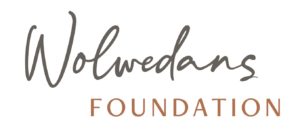BLAME!GAME
It's always the other's fault
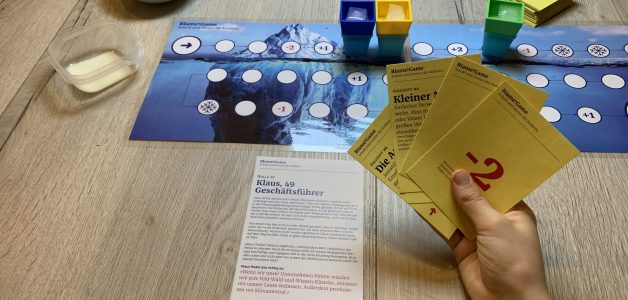
Schools of Tomorrow
Schools are laboratories for tomorrow’s society! But how can they become places where a new future emerges? What social agents are necessary for this?
Schools of Tomorrow is a project initiated and co-ordinated by the House of World Cultures Berlin in order to artistically research the future of schools.
Everything started with a Game Jam in December 2020. Since then we have been working on the development of a board game that specifically deals with climate change – in cooperation with students from the Evangelische Schule Zentrum in Berlin.
Blame!Game has now been presented as part of the House of World Cultures’ ‘Schools of Tomorrow’ program.
It is designed for 2-7 players who slip into different roles by drawing a card and being given an ice cube. Now everyone tries to bring their own ice cube to the goal on the playing field. At the same time, he or she does everything possible to destroy each other’s ice cubes with various verbal and mechanical attacks.
Slowly but surely the pieces are melting away …
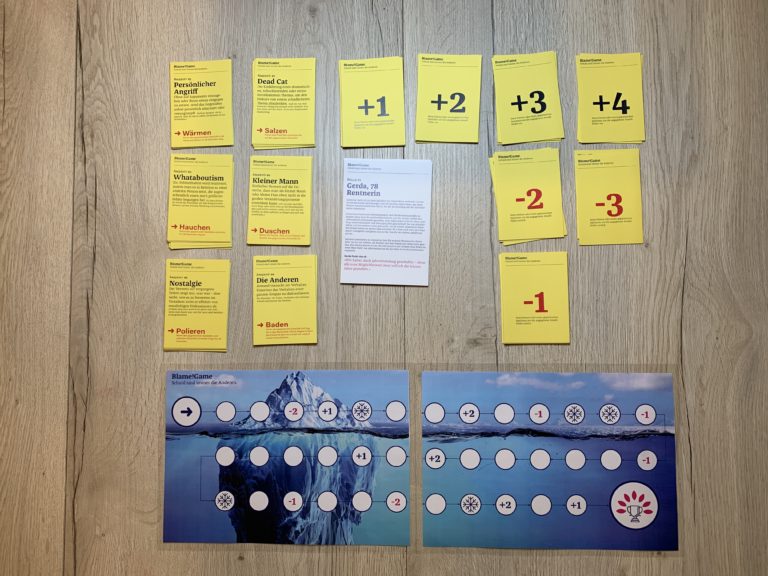
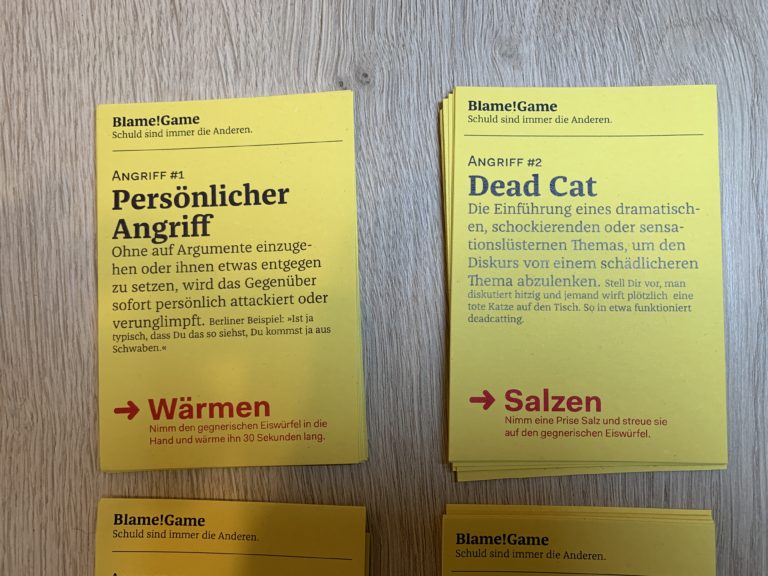
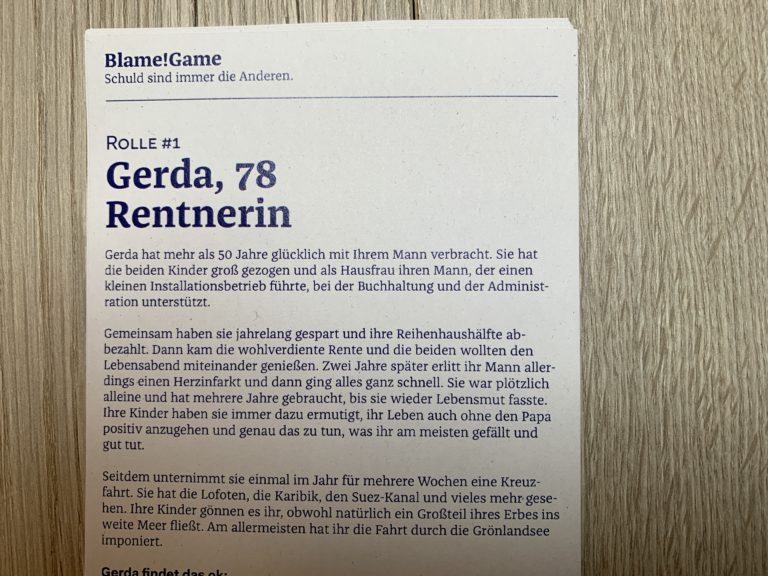
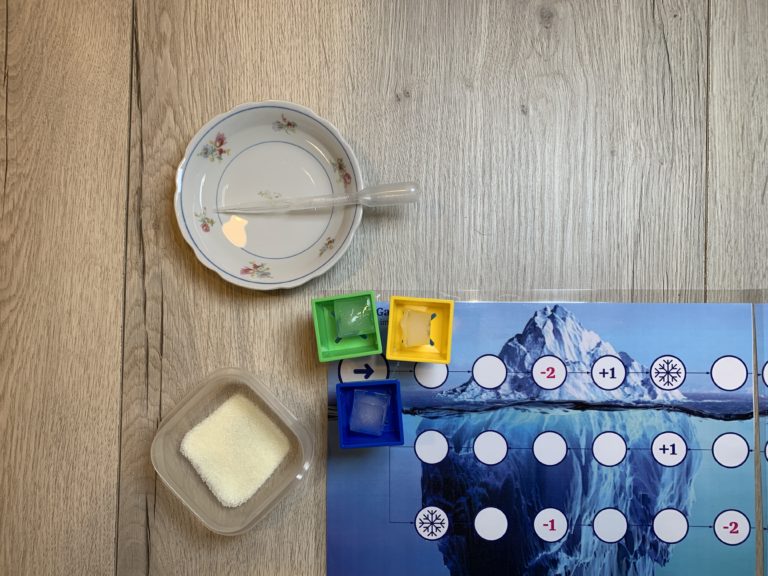
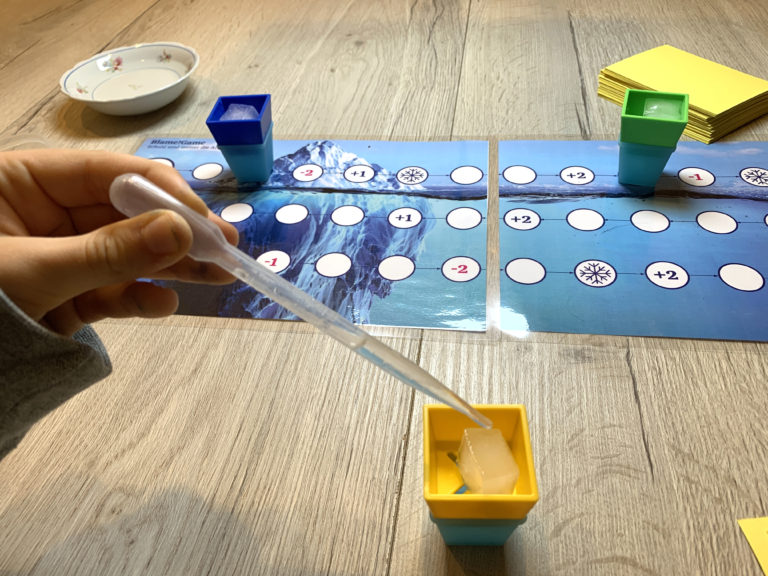
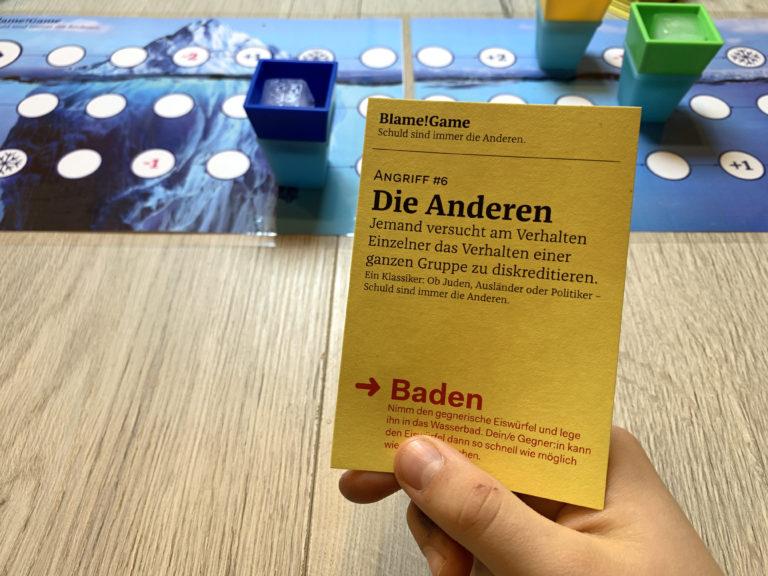

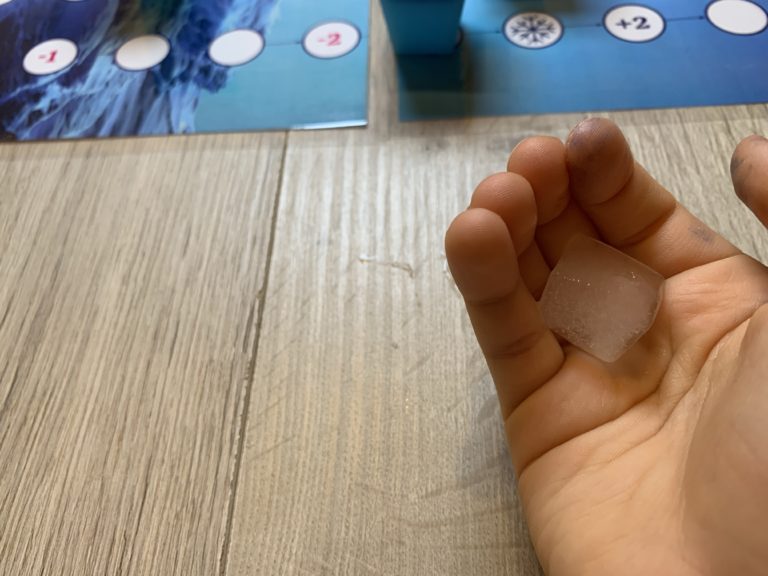
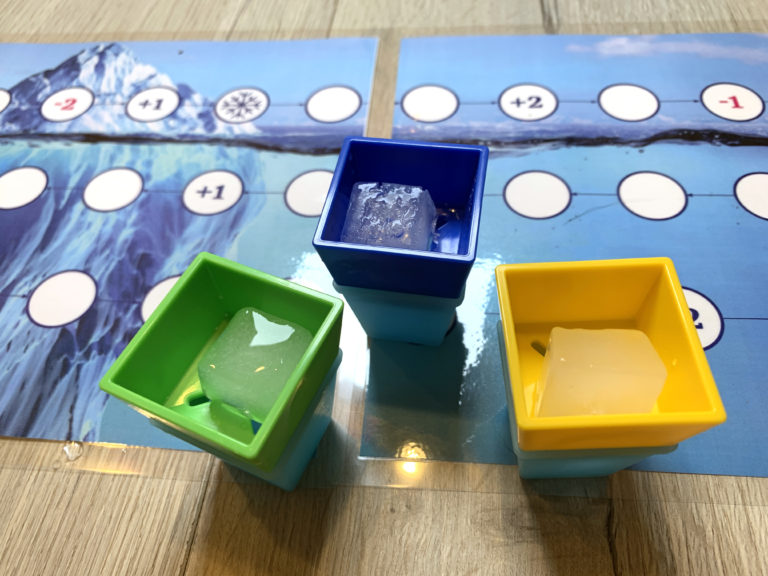
BONES RISING
A Theatre Project in Namibia

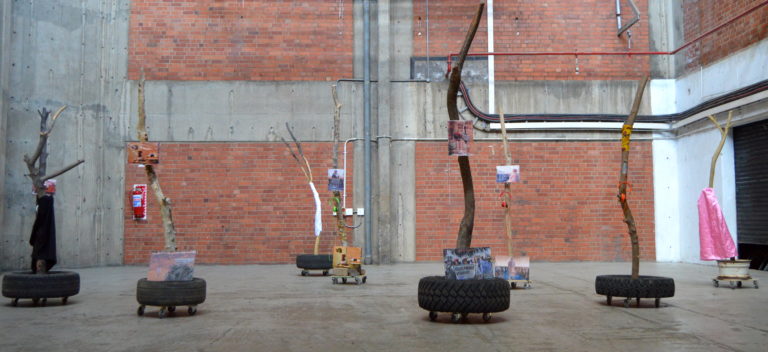
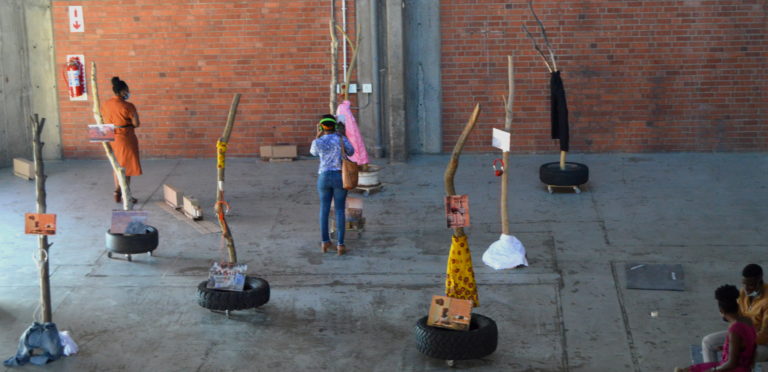
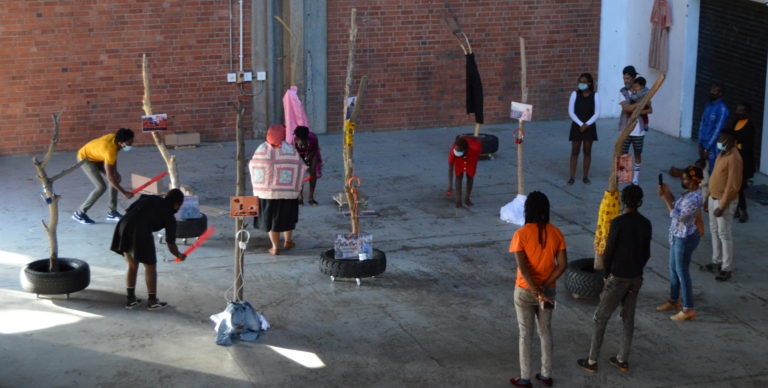
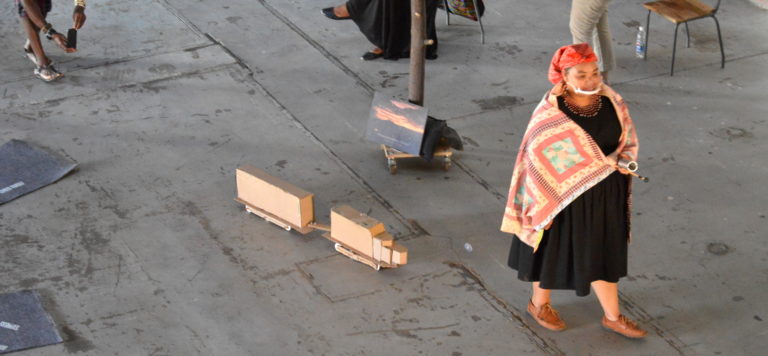

BONES RISING is a project which comprises the developmentof a theatre production with a participatory approach as well as a multimedia performance. The primary target group are children and adolescents aged 8 to 16 years.
The project is based on the use of diverse art forms, such as still images and motion projections, dance, acting, musical and vocal elements. The artistic team combines individuals who are normally separated by language and distance to facilitate cultural exchange whilst developing peer to peer impact literacy.
Starting point is the folk tale, ‘Human Bones’, which deals with the story of Leana, a young and vibrant Namibian single Mother who collects dry animal bones to exchange with a German Shopkeeper for money to buy food for her Children. One day Leana finds a pile of bones that she happily collects and takes to the shopkeeper, not knowing that these bones were bones of a Warrior who died during a Nama-Herero Battle.
The project is realised throughout 2021 with the support of the International Coproduction Fund of the Goethe-Institut.
© 2021 VM BORN STARS PRODUCTIONS CC Windhoek, urban dialogues Berlin, Arch Indigo Group Harare, Avant Scene Yaoundé and Goethe-Institut, Munich.

Games for Our Common Future
Final Presentation
THURSDAY, 26 NOVEMBER 2020, 6-9pm
Goethe-Institut
5 Fidel Castro Street
Windhoek, Namibia
It’s time to throw the dice! After a 72-hours Game Jam hosted at Wolwedans earlier this year, four of the participating teams are presenting theirs fully-fledged and playable results. The Serious Games and Role Games that were created are contributing to social development in addressing matters such as climate change, inequality, global interdependence and sustainability.
A Game Jam is an intense and learning and production arrangement that gathers a group for them to explore serious topics by means of Game Design, Graphic Facilitation and Product Development within a limited time frame. The active participation and responsibilities of the younger generations in such discourses has great potential through something not foreign to them: games.
Games for Our Common Future was initiated by a Berlin-based art association, urban dialogues, and has been active across Africa for more than 20 years in spearheading the development and implementation of educational art programmes in response to the urban flux and social change.
Games for Our Common Future is funded by the Goethe-Institut Namibia and supported by the Wolwedans Foundation.

A Game Jam for Young Namibians
From 8-11 October 2020 we were supporting the slowly emerging spirit of active participation and responsibility in Namibia for topics such as climate change, sustainability, global interdependencies and equality, amongst others, by organizing a Game Jam Event right in the heart of the Namib Desert at Wolwedans.
We are proud that this 72-hours sprint event produced five mock-ups of Serious Games, all of them are ready to play.
The project was a cooperation between urban dialogues, the Goethe-Institut Namibia and the Wolwedans Foundation.
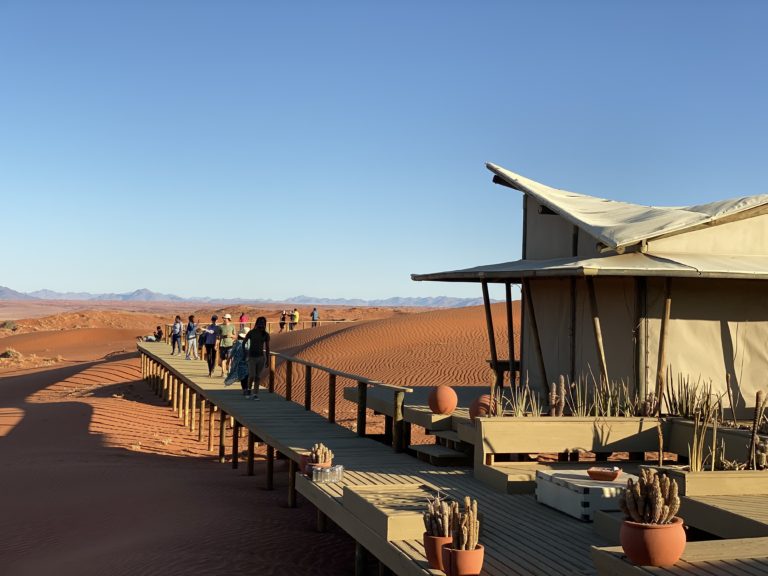
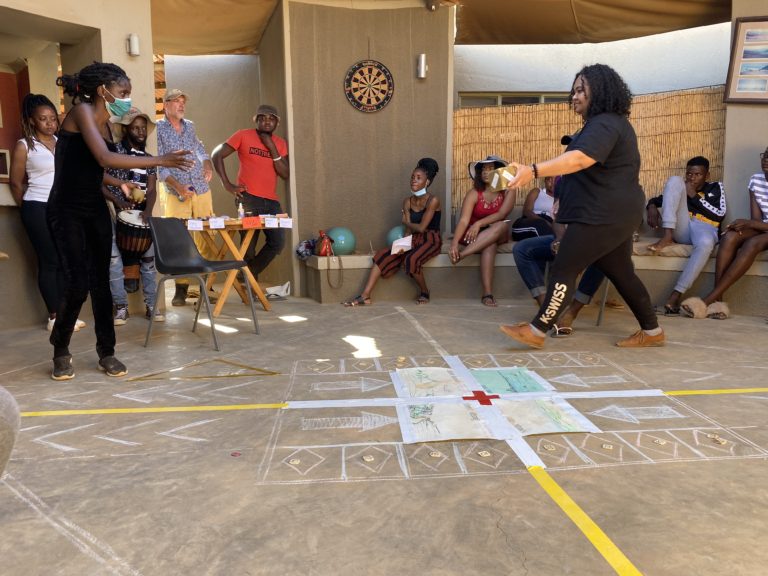
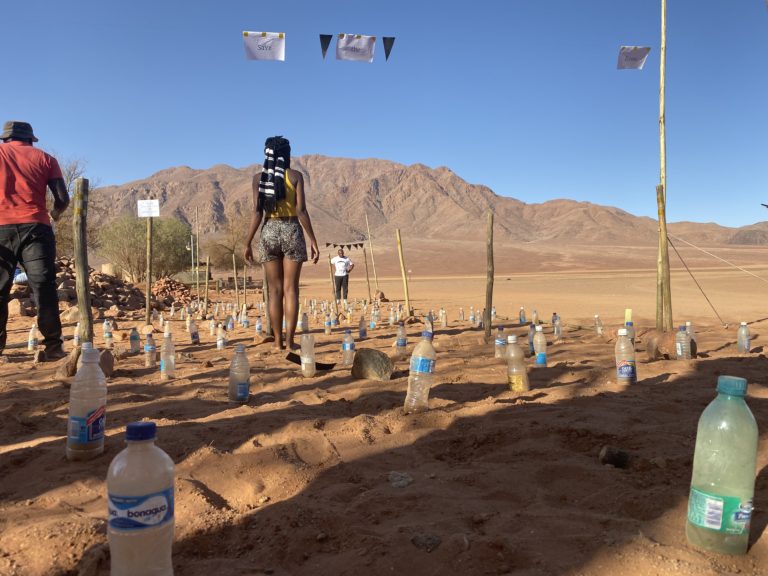
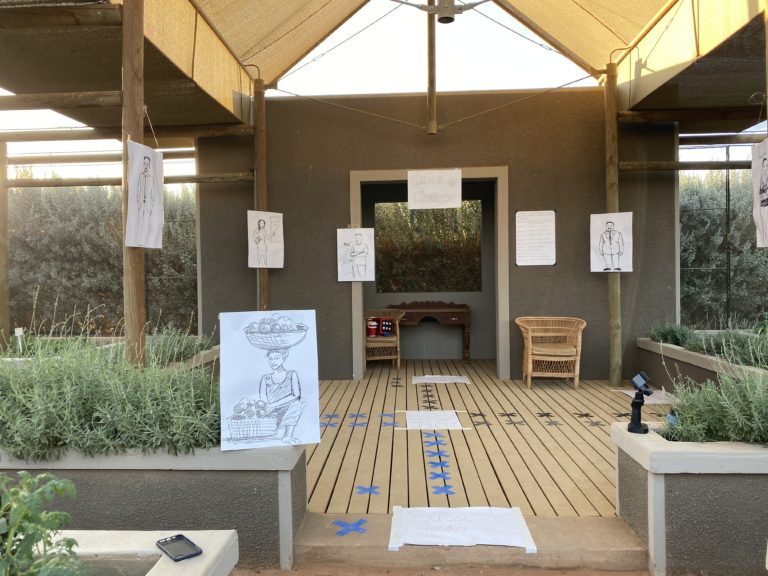

Illustration Video contributing to the fight against the
pandemic in Namibia
This video has been released on African Day, 25 May 2020.
It is reflecting the efficiency of the current struggle regarding Covid-19 in Namibia.
It is the fruitful result of the collaboration between the Namibian artist and graphic facilitator Hage Mukwendje and storytelling by urban dialogues’ artistic director Stefan Horn.
Game Jam in Berlin
as part of
'Schools of Tomorrow'
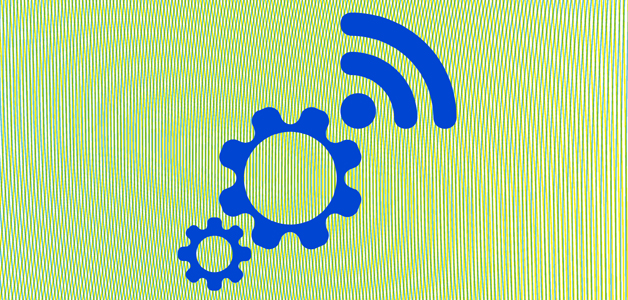
Schools of Tomorrow
is a project initiated and co-ordinated by the House of World Cultures Berlin in order to artistically research the future of schools.
Due to the current situation the envisaged Game Jam preparations in cooperation with House of World Cultures Berlin and the Evangelische Schule Berlin Zentrum have been postponed.
But now we are ready to run our Game Jam Event from 8-11 December 2020.
As part of the already planned project, the school partner ESBZ would like to transform the entire school structure into a playground around the topic of participation.
Under the guidance of urban dialogues, students will develop the underlying game concept, which will then be further developed as part of a 24-hour game jam.
Game jams are intensive learning and research arrangements and allow individual, emotional as well as cognitive and experience-based learning. They impart pioneering skills such as teamwork, fault tolerance and user orientation.
Debate on Public Space and Public Art
A playful debate
moderated by Stefan Horn (urban dialogues)
11 February 2020 at Namibian Art Association
Respondents:
Ndapewa Fenny Nakanyete, Ellison Tjirera
and Natache Sylvia Iilonga
During our debate we discussed the meaning(s) of public space and shares ideas on how public art projects can contribute to the public sphere, with a particular focus on the city of Windhoek.
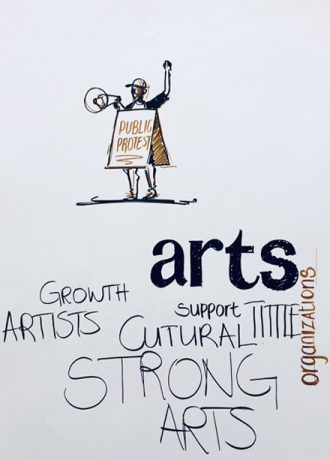
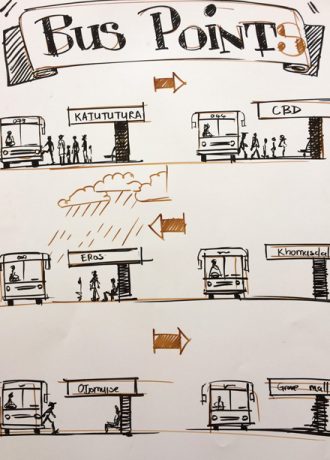
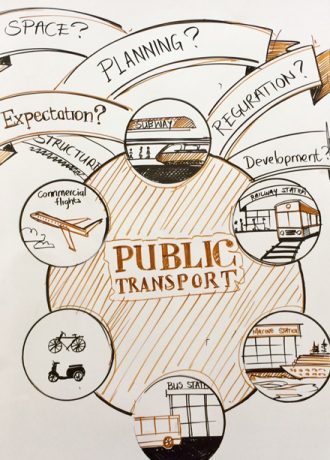
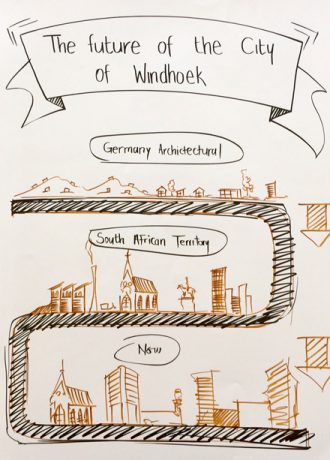
Graphic recordings by Hage Mukwendje
The public space is a place that is generally open and accessible to everybody and doesn’t belong to an individual person or a private company. This includes roads and pavements, parks and squares in our cities. To a certain extent, also public libraries, stadiums, public swimming pools, government buildings or even shopping malls can be considered as semi-public spaces with limited accessibility as they are restricted to opening hours or privately owned and managed.
The »public sphere«, a term originally coined by prestigious German philosopher Jürgen Habermas, is an area of social life where members of society participate in a discussion that influences political action. In the public sphere, it is not the social status of the participants that matters, but the quality of their arguments. Hence, everyone is entitled to participate in the public sphere and then influence the direction of current political and social affairs.
In this sense, cultural and artistic practices may be considered as attempts to examine the notion of the ‘public’ and create an ‘ideal’ public sphere.

